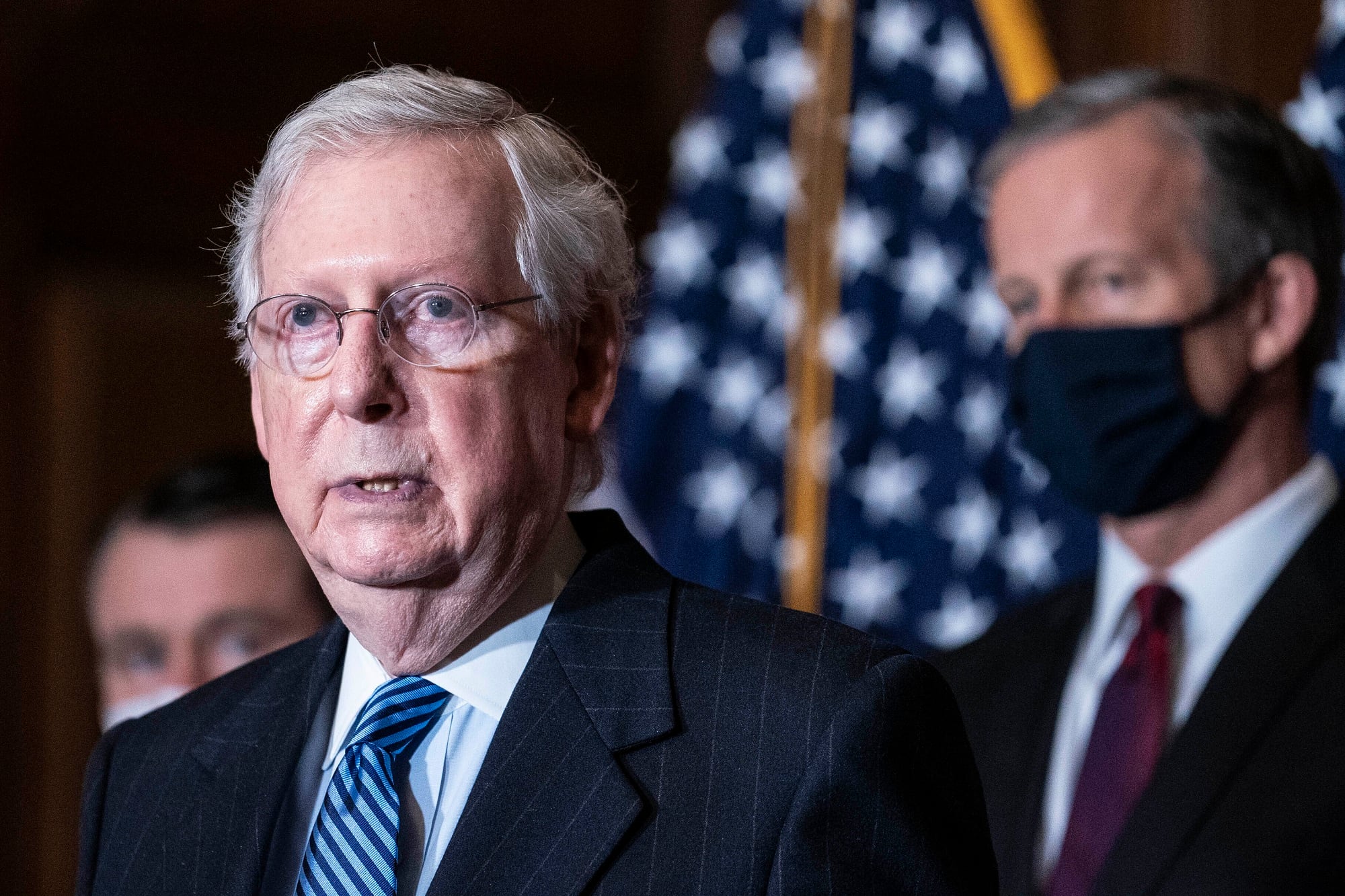WASHINGTON ― President Joe Biden will launch the annual budget and appropriations process Friday when he sends Congress his discretionary spending top line requests for fiscal 2022 ― but Pentagon spending, policy and nominations will be jostling for attention in a busy Congress.
Democrats, with control of Washington for the first time in years, have an ambitious agenda to pass big bills not normally seen in an administration’s first year, including pandemic relief spending, two infrastructure spending packages, voting rights legislation and legislation to boost U.S. competitiveness with China.
“What’s going to be different this year is we’re facing a monumental legislative traffic jam,” said Arnold Punaro, a former Senate Armed Services Committee staff director and the chairman of the board of the National Defense Industrial Association.
“Those are going to be the priorities of the administration, and your traditional authorization and appropriation bills really can’t get cranked up until we get the budget details ― and we’ll be lucky to see serious budget details before Memorial Day.”
New administrations often roll out their budget requests late in their first year, but this year’s planning has been particularly difficult for Biden officials, they say, because the Trump appointees blocked the Biden landing team at the Pentagon from accessing budget documents until just before the inauguration.
Biden is unveiling his “top line” request Friday. But because his detailed budget request with agency-by-agency budget estimates isn’t expected until later this spring, it will be a challenge for the appropriations and authorizing committees to draft their bills for fiscal 2022.
That increases the likelihood Congress will miss its deadline to pass federal spending before the end of the fiscal year (Oct. 1) and will resort to at least one continuing resolution to keep the government operating. These stopgap bills have become the norm, but they’re unpopular with the Pentagon and the defense industry because they ban new-start defense programs and create instability.
RELATED

Congress returns from a two-week recess on Monday.
The House Appropriations Committee is aiming to mark up its defense bill at the end of June, with floor votes starting in mid-July and a commitment from House leadership to get every appropriations bill off the floor before August recess, according to a Democratic House appropriations aide.
Because the fiscal 2021 bill for defense that passed in December will be for roughly the same amount Biden’s proposing, it gives lawmakers a rough framework. Beyond working to meet the country’s national security needs, Democratic appropriators are expected to champion Biden’s priorities and tap the White House for help to get the needed votes to pass their bills.
“Just like we’re going to have to fight for every vote on an infrastructure package, we’re going to have to do this on appropriations bills too,” said the aide. “There is going to be a lot more old-fashioned horse trading, and we have a guy in the White House who knows how to do that. ... We’re going to work to get to 218 votes with Democrats and with Republicans.”
Democratic control of Washington means the House defense appropriations bill will be “a microcosm of the federal budget,” the aide said, cognizant of job creation, education and research, clean energy and climate resiliency as well as workforce development. That’s seen as a way to attract progressive Democrats who would otherwise seek defense cuts.
Whatever the best intentions are for on-time budgeting, Congress faces “congested traffic” from nomination hearings and budget hearings, said Pete Giambastiani, a former Pentagon legislative affairs official in the Trump administration. Plus, tensions in Afghanistan, the Middle East, Crimea or the Taiwan Strait could flare up at any time to grab the focus.
“It’s going to be a busy April, May, June. People will go crazy in July, and then [the August] recess will happen,” Giambastiani said.
RELATED

On Friday, Biden is introducing a $715 billion defense budget request, a slight decrease from 2021, when adjusted for inflation, according to multiple reports. Two poles have already emerged in Congress on the top line: Lead Republicans are arguing for a 3 to 5 percent of inflation-adjusted growth and progressives are seeking as much as a 10 percent cut.
Punaro foresees upward pressure coming from hawkish Republicans who reason that if trillions in pandemic and infrastructure spending are okay, a few billion more for defense should be too. He also predicts that moderate Democrats in swing districts, after being asked by the White House to support a series of politically charged spending bills, will want to resist cuts to job-supporting defense acquisition programs.
“The administration is going to be asking moderate Democrats, who are the lifeline for a reasonable defense budget, to be making lots of tough votes on these reconciliation infrastructure bills. How many additional tough votes are people going to be willing to take?” Punaro said, adding: “I don’t think there’s any possibility a 10 percent cut to the defense budget is going to happen.”
Of the 61 Senate-confirmed roles at the Department of Defense, only six nominations have been named to date, and only the Pentagon’s top two civilians have been confirmed. Biden’s nominees for those jobs are expected to easily get time from the Senate Armed Services Committee, but they’ll be competing with legislation and other nominees for consideration on the Senate floor.
Senate Democrats have vowed to move swiftly on Biden’s judicial nominees to mitigate the influence of former President Donald Trump, who saw Senate Republicans confirm 200 of his judges. Senate Democrats are also expected to prioritize State Department nominees to revamp the beleaguered agency and revitalize American diplomacy.
“Any nominee that has to get closure is going to be competing with all these legislative traffic jams,” Punaro said. “I think the domestic legislation is certainly going to be a higher priority.”
Joe Gould was the senior Pentagon reporter for Defense News, covering the intersection of national security policy, politics and the defense industry. He had previously served as Congress reporter.








